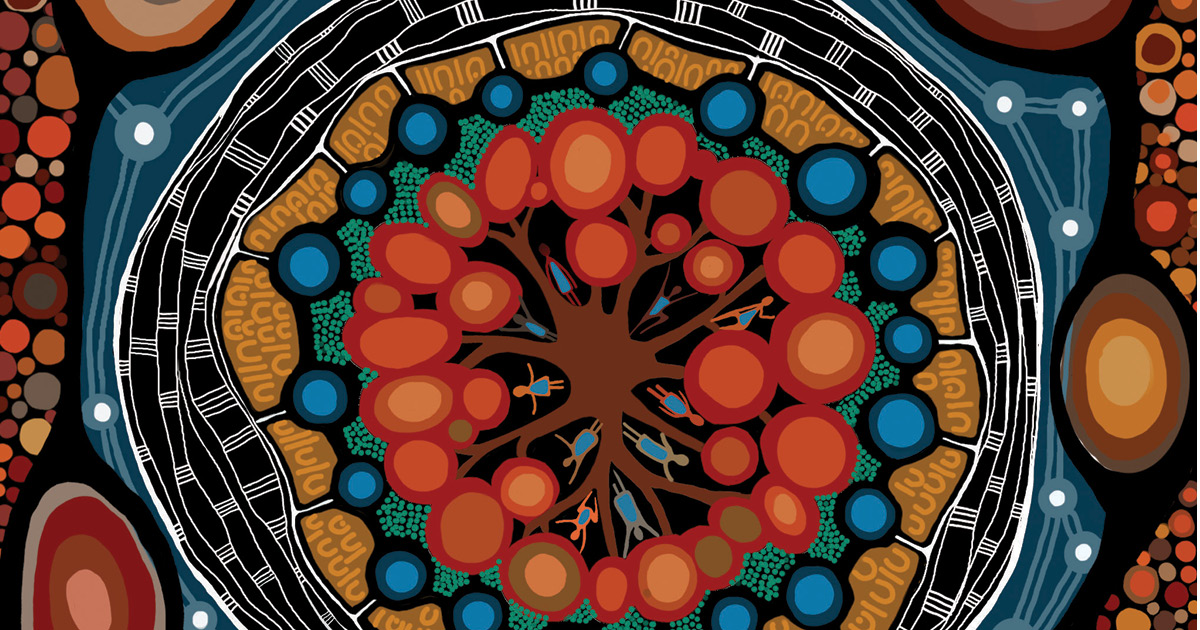Search
Showing results for "mental health aboriginal"
Research
Humility, inquisitiveness, and openness: key attributes for meaningful engagement with Nyoongar peopleThe rebuilding of trust requires the development of meaningful relationships in order to break down the barriers so as to increase access and develop culturally secure responses by services
Research
Effectiveness, efficacy, acceptability, and feasibility of trauma-informed depression, anxiety, and substance use prevention programs for young people aged 12–25 yearsMental ill-health and substance use bear significant public health burden on young people. Prevention is key. Trauma-informed approaches to prevention of mental ill-health and substance use demonstrate significant promise, yet it is unclear how well existing approaches work for young people targeting mental ill-health and substance use. This review aimed to assess the effectiveness, feasibility, and acceptability of trauma-informed mental ill-health and/or substance use prevention programs for young people.

As WA's first research collaboration dedicated to mental health, we work across The Kids Research Institute Australia and beyond to do the research that the community wants to see happen.

Life imitates art in a new project that seeks to entrench cultural safety for young Aboriginal and Torres Strait Islander people into WA’s mental health system.
Research
Affirming schools, population-level data, and holistic public health are key to addressing mental ill-health and substance use disparities among gender and sexuality diverse young peopleYael Perry BPsych (Hons) MPsych (Clin) PhD Head, Youth Mental Health 08 6319 1298 yael.perry@thekids.org.au Head, Youth Mental Health @yaelperry she/
Research
The impact of maternal prenatal mental health disorders on stillbirth and infant mortality: a systematic review and meta-analysisEvidence about the association between maternal mental health disorders and stillbirth and infant mortality is limited and conflicting. We aimed to examine whether maternal prenatal mental health disorders are associated with stillbirth and/or infant mortality. MEDLINE, Embase, PsycINFO, and Scopus were searched for studies examining the association of any maternal prenatal (occurring before or during pregnancy) mental health disorder(s) and stillbirth or infant mortality. A random-effects meta-analysis was used to calculate pooled odds ratios (ORs) with 95% confidence intervals (CIs). The between-study heterogeneity was quantified using the I2 statistic. Subgroup analyses were performed to identify the source of heterogeneity.
Research
Working TogetherThis exciting new edition includes several new chapters that deliver an even more robust and high quality resource. It examines issues across the life course,..

News & Events
Leading youth mental health researchers welcome sector fundingLeaders of Western Australia’s youth mental health research sector from Embrace at The Kids Research Institute Australia have welcomed the state government’s $420 million boost to mental health spending in its 2023-24 budget.
Research
Rainbow Knowledge: Broome & KununurraRainbow Knowledge: Broome & Kununurra is a First Nations led research project that aims to explore the perspectives, social emotional wellbeing (SEWB) and mental health experiences of Aboriginal & Torres Strait Islander Lesbian, Gay, Bisexual, Transgender, Queer or Questioning, Asexual (LGBTQA+) or other sexually
Research
Connection to... Addressing Digital Inequities in Supporting the Well-Being of Young Indigenous Australians in the Wake of COVID-19This article examines whether connection to digital technologies helps connect young Indigenous people in Australia to culture, community and country to support good mental health and well-being and protect against indirect and potentially long-term effects of COVID-19.
